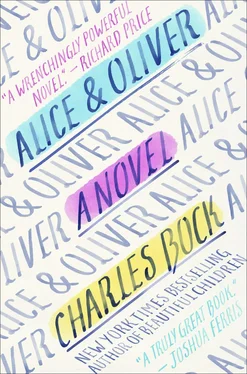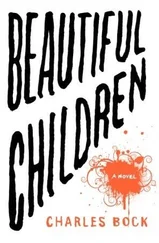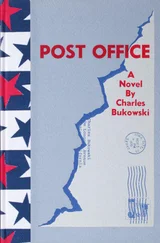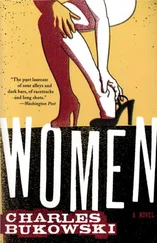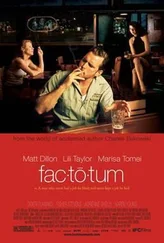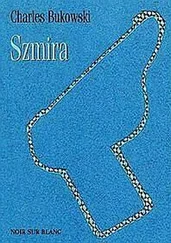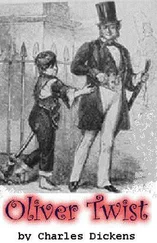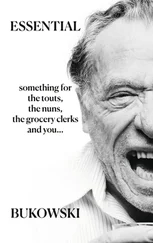Alice appeared thankful, if half-impressed. “I just don’t comprehend. How hard can it be to find someone I don’t mind spending my days around who understands she’ll be entering a…”
“—delicate situation.” Tilda picked up the phrase on rhythm, started repeating the words in a singsong. “With a number of unique demands—”
“—who can be trusted with my child’s care—”
“—ten A.M. to six each afternoon—”
“—though, sometimes longer—”
“At a rate that isn’t completely obnoxious,” Tilda finished.
Alice was a grinning skull. “Precisely. Why is that so difficult?”
In the background, an album of contemplative Ghanian tribal music had run to completion. Alice extended her hand toward one of their CD towers (each: wavy, six feet tall, burnished steel). She grabbed a jewel case and opened the plastic cover as if it were a book — Oliver had a long-standing gripe about his wife’s lazy habits, in particular her proclivity for putting compact discs in the wrong cases (inside cases showing plaid-shirted screaming guitar misfits, too often he’d find the meditative sea songs of humpback whales).
Tilda motioned without patience. “Here. Let me.” She was a largish woman, but moved with coordination and an athletic grace, pulling out different jewel cases. Tilda wasn’t about to pretend she didn’t know Oliver referred to her as Matilda, let alone Hungry Hungry Hippo, and “a woman on whom every single piece and color of fabric magically turns to brown.” Inserting a performance art monologue about female friendship during menopause into the prog rock slipcase, Tilda recounted her trip to that sketchy warehouse district under the Brooklyn Bridge.
It was the regular deal: the windows on the F train carved up to where they were impossible to see through, the station signs, once you got out of Manhattan, splattered with graffiti and unreadable, Tilda waiting for that first stop, paying attention so as not to miss her exit. “But here’s the wrinkle. As soon as I arrived and came up from out that shit-ass station, wild dogs started chasing me. Wild dogs chased me through DUMBO for four blocks .” She laughed and updated Alice on her attempts at networking: “Oh, I dropped something off for the group show I told you about. The assistant said the curator’d get back to me, so, I mean, I know what that means, but who knows, right….” Then moved on to the gloriously sketchy legal proofreading class she’d found in the back classifieds of the NYPress: “It’s taught out of this woman’s apartment, okay? It’s enough to make me ashamed of myself. You take this class and instead of having to go through the official certification rigmarole, this woman gives you a list of phone numbers of other people who’ve taken the class. They’re working at law offices and vouch for you. So long as you pass the official proofreading entry test, you’re in. Then you vouch for other people from the apartment. Naturally, every name on my contact list is disconnected.”
“There must be a way for me to see Doe during chemo,” Alice said.
Tilda went quiet. Her puttylike features froze.
“Whether I need to talk with another hospital,” Alice continued, “the transplant surgeon, whoever, there has to be someone. I mean, we don’t have a choice about this consolidation, okay. But to not see my child?”
“She won’t remember a thing,” Tilda answered. “It’s going to be harder on you.”
“I can’t do this and be separated from my baby. I won’t.”
Tilda took care in placing the debut album from Oliver’s favorite noise band into Doe’s little grip; she let the child slobber on the silver surface; she softly rubbed the length of Alice’s calf. “Enjoy your time in the now. The treasure is right here.”
“I don’t trust Western medicine,” Alice said. “If I didn’t have Doe to consider, I could easily go up to some ashram, treat myself through meditation.”
“Western medicine can be part of God, too. You just have to let it be.”
Alice batted her head, as if swatting away the remarks. “The uncertainty is the hardest thing.” She teared up. “Living with fear.”
“People who go through something are interesting. They’ve lived. That’s worth something. Believe me: writers, fashion, art, whatever, if it has no point of view, if it’s entertaining but not profound, I always want to say: Why do this? How many guys have I met that are wastes of time like that—”
Alice leaned back, giving her weight to the headboard’s wrought-iron curls and swirls. She closed her eyes. “In the winter, when a tree hibernates, all of its strength goes down to the roots.” Feeling for Tilda’s hand, Alice clasped. “I have to leave behind my smallness, my pettiness, all the things I don’t like about myself. If I keep on doing things the same way”—a dismissive flick of the wrist—“this is a failure and a waste of time.”
“You can’t honestly believe there’s some connection? Habits have nothing to do with this.”
The sound of the noise machine. Then a sniffing.
“I’m giving it a year,” Alice said. “In a year all will be better.”
Tilda nodded, then became distracted, an awareness: dawning, taking over. Alice smelled it, too. Always that dry ice.
“Can we— Let’s get out of here.”
Tilda did not move.
“I’m up for it,” Alice said. “Toesie-swear. Come on, honeysuckle. Don’t be such a puss.”
—
Legend had it that the owner and his pals used to ride their motorcycles around inside the biker bar. Behind the massive ornate wall mirror, bras hung like toilet paper from tree branches: some were lacy, worn, and supportive, others had underwire, still others were made for business. Each was deeply sexual. From behind the ancient oak bar, young men in expensive suits stood, four thick in the stacks, jostling for position, waiting for their turn to try for the attention of one of the hot little numbers plying drinks. One otherwise indistinguishable white young man waved his money. The brunette passed. Leaning toward his childhood friend, straining to be heard above the music and din, Ruggles screamed: “The science these people have now, fucking nuts . They have more answers, sahib. More knowledge. Telling you, best time in the history of civilization to get sick.”
Every day was like this for Oliver. Another member of the inner circle getting in touch, another heart-to-heart. The next morning it was Jonathan, his older cousin, a survivor of three consecutive New York City Marathons, asking to meet him at the West Side Pier, where Jon ran in the mornings before heading in to the architecture firm (he was a junior junior something). Having just finished ten miles, Jonathan was bent over, taking deep breaths, his lightweight jogging hoodie open, his shirt soaked. What did the perennial voice of reason want to tell Oliver? “At least you’re not referring to the baby as it anymore.”
Friends, long out of touch, called as soon as they heard. “Unbelievable” was said, again and again, each pal heartfelt, having the best of intentions, wanting to know: “Can I do anything?”
Ruggles lifted his PBR, kicked his head back, took yet another swig. He loosened his tie and did not pretend to hide his appreciation of the cowboy-hatted college girl behind the bar. “Sahib, I’m telling you, fucking way more’s being done to make sure Phase One and Two cancer drugs are available to patients these days. Serious, man. Cancer drugs are rainmakers. So much goddamn capital’s invested in them. Don’t let this shit get to you, understand?”
Going into a stretch of early afternoon. His dad barely waited for Oliver to pick up the phone. “Those insurance agencies,” Dad began. “Buncha dirty whores. I say this ’cause they have sex for money and don’t bathe after.”
Читать дальше
